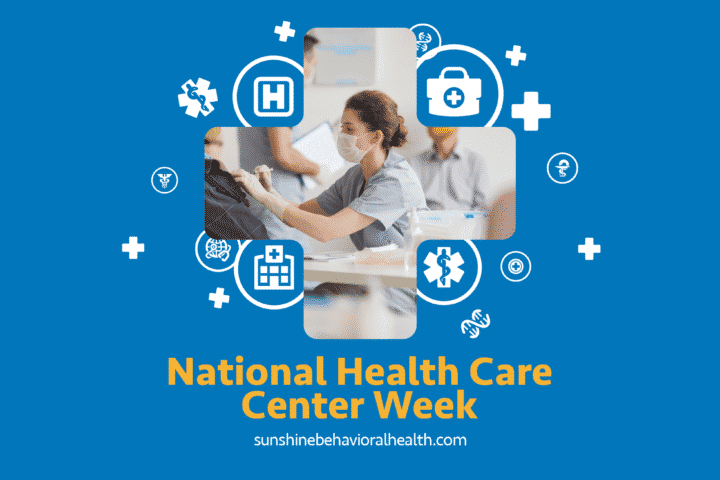
National Health Center Week
Every August, we commemorate National Health Center Week. Some people might not know much about health centers, but for the people they serve, health centers are a lifeline.
In fact, health centers serve more than 27 million people every year.
During the COVID-19 pandemic, health centers have provided services that have boosted the health and spirit of the communities they serve.
Health centers and communities
For example, some health centers have teamed with churches and religious organizations. In 2021, Cornell Scott Hill Health Center and First Calvary Baptist Church, both in New Haven, Connecticut, partnered with each other to ensure that Black residents of the area received COVID-19 vaccinations.
Since Black and poorer people’s health care needs have traditionally been underserved, this effort aimed to correct historical wrongs. Since more vaccinations means more people have immunity, this partnership strove to improve the health of families, schools, workplaces, and communities.
Religious leaders hoped that the initiative helped explain vaccinations and their benefits, especially to people who were wavering about receiving the injections. They also hoped that such efforts dispelled beliefs that the majority of Black people are reluctant to receive vaccinations.
Methadone clinics
Other health centers serve useful purposes but may be more controversial. Methadone clinics are examples.
Doctors prescribe the opioid drug methadone to help curb people’s opioid cravings and withdrawal symptoms so they can function normally without addictions dominating their daily lives.
Using methadone and other drug-based treatment is sometimes controversial. Critics say that it’s trading one addiction for another.
But researchers say that this approach, which also combines therapeutic assistance and is also known as medication-assisted treatment, is “the gold standard of biomedical care for opioid use disorder, and is effective in reducing the frequency of injecting among people who inject drugs.”
Methadone is a controlled substance. Until 2020, people have only been able to receive methadone with prescriptions and by visiting health centers that distribute it. Such centers are often known as methadone clinics.
Pandemic-related social distancing has changed these practices for some.
In 2020, the U.S. Substance Abuse and Mental Health Services Administration began allowing some people with methadone prescriptions to receive a month’s or a two week’s supply of the drug to take at home instead of requiring them to visit methadone clinics every day.
People hoped these measures would reduce crowd sizes and contact at clinics and on public transportation.
Not everyone can use methadone at home. Only people who are more stable in their recoveries are eligible for home use.
Although it’s used as a prescription medicine, methadone is still a dangerous, possibly addictive drug. People can experience methadone overdoses, withdrawal symptoms, or other negative effects if they misuse it.
Health care facilities and change
By allowing some people to use prescription methadone at home, health centers are shifting the way they operate to respond to different needs.
Working with churches, institutions, and organizations to provide COVID-19 vaccinations and education also illustrates how health clinics are acknowledging the needs of local residents and fulfilling them.
Health centers don’t just serve communities — they’re part of the communities themselves.
Sources
iabhp.com – National Health Center Week
ncbi.nlm.nih.gov – History of Medication-Assisted Treatment and Its Association with Initiating Others into Injection Drug use in San Diego, CA
sunshinebehavioralhealth.com – Methadone Addiction and Abuse
A Message From Our CEO
Medical disclaimer:
Sunshine Behavioral Health strives to help people who are facing substance abuse, addiction, mental health disorders, or a combination of these conditions. It does this by providing compassionate care and evidence-based content that addresses health, treatment, and recovery.
Licensed medical professionals review material we publish on our site. The material is not a substitute for qualified medical diagnoses, treatment, or advice. It should not be used to replace the suggestions of your personal physician or other health care professionals.





